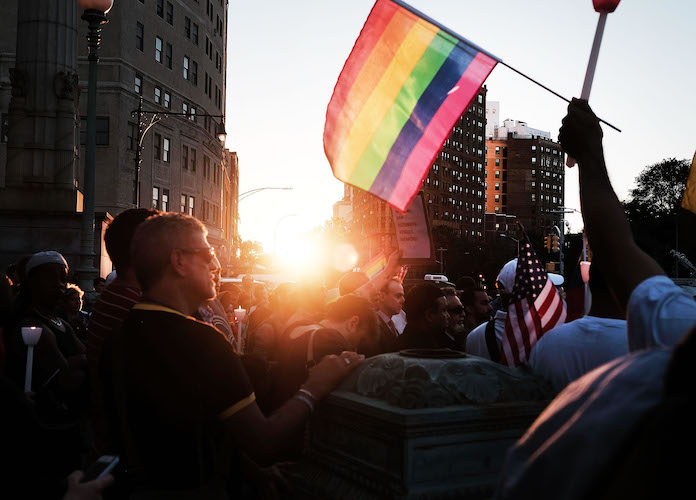It’s Ok To Be Gay In Murfreesboro, Tennessee Again After Town Repeals Law Banning LGBTQ Couples From Showing Affection in Public
In June, the rural Tennessee town of Murfreesboro recently passed an ordinance banning LGBTQ couples from showing affection in public.
It sought to ban “indecent behavior,” which, according to Section 21-72 of the law, would include “indecent exposure, public indecency, lewd behavior, nudity or sexual conduct.”
In the section, it explicitly included homosexuality as a form of sexual conduct – effectively restricting public displays of affection for LGBTQ couples.
The city has now amended the bill to explicitly state that LGBTQ couples are exempt from these restrictions after a court blocked its implementation.
People caught violating the old law would have been barred from hosting public events or selling goods and services at such events for two years. A five-year ban would have been even more severe if the violation occured “in the presence of minors.”
In response, the ACLU of Tennessee filed a lawsuit against the city in early October. The lawsuit was made in the name of the Tennessee Equality Project.
The situation escalated when the Rutherford County steering committee convened to discuss banning books that could be deemed violating the ordinance, triggering public outrage.
The books the town has banned notably discussed LGBTQ themes within them. Among these books were titles such as Flamer by Mike Curato; Let’s Talk About It by Erika Moen; Queerfully & Wonderfully Made edited by Leigh Finke; and This Book is Gay by Juno Dawson.
Two other books, An ABC of Equality by Chana Ginelle Ewing and Gender Queer by Maia Kobabe, have been moved to a higher age category.
The law has sparked a debate about censorship, with activists condemning the suppression of diverse voices and stories.
Local activist Keri Lambert has expressed concerns at a city meeting, asking, “When have the people who ban books ever been the good guys?”
RELATED ARTICLES
Get the most-revealing celebrity conversations with the uInterview podcast!








Leave a comment